21 BRIDGES (2019)
An embattled NYPD detective is thrust into a citywide manhunt for a pair of cop killers after uncovering a massive and unexpected conspiracy.
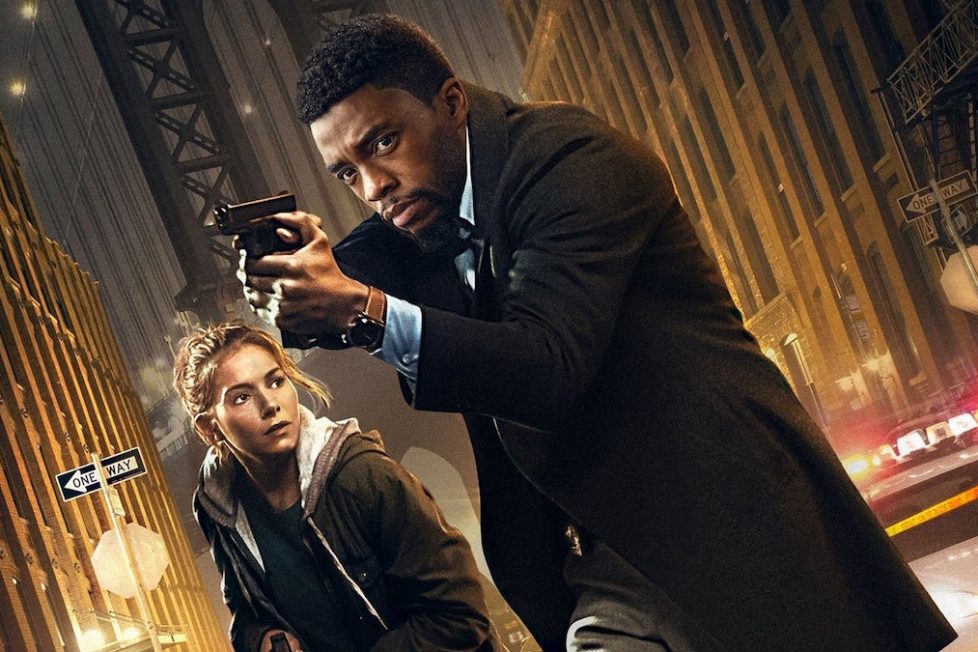
An embattled NYPD detective is thrust into a citywide manhunt for a pair of cop killers after uncovering a massive and unexpected conspiracy.


Capped by their record-breaking success with Avengers: Endgame (2019), the Russo Brothers have become a household name. Taking a step back from directing, the siblings are now moving forward to develop projects as producers. Reuniting with Marvel Studios alumnus Chadwick Boseman (Black Panther), 21 Bridges is the Russo’s first major project under their production company AGBO.
In a world filled with endless sequels, prequels, and reboots, the idea of a crime thriller with no recognisable characters seems unthinkable. Without the Russo’s reputation as “visionary directors” that may have remained the case. 21 Bridges is the anti-superhero feature that may never have existed without the Russo’s clout. After several script re-writes during development, including a title change from 17 Bridges, Brian Kirk makes his directorial debut with a stylish New York thriller.
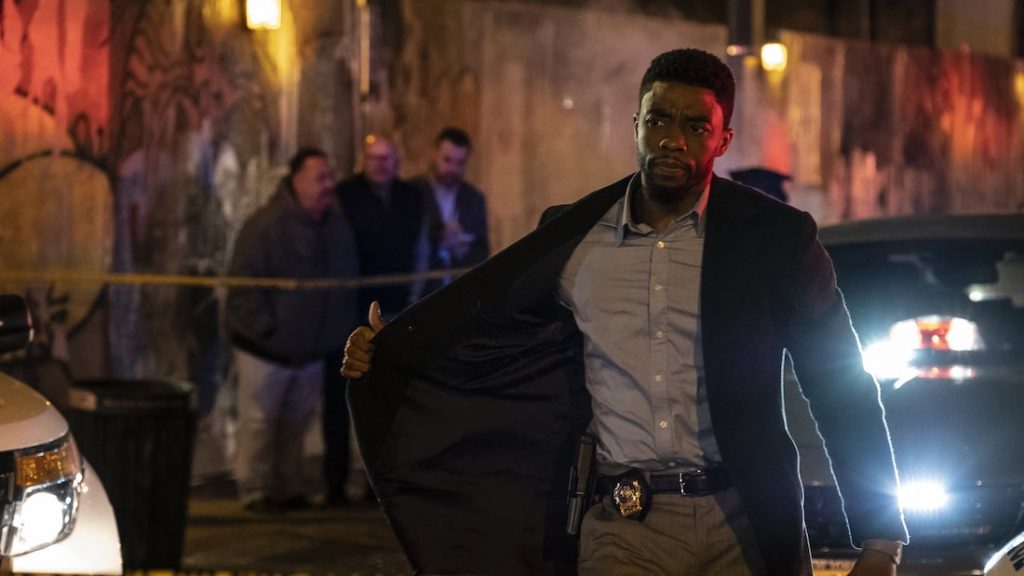
NYPD detective Andre (Chadwick Boseman) has policing in his blood but a reputation for shooting criminals. Armed to the teeth, two small-time drug thieves (Stephen James, Taylor Kitsch) take a job to ransack a winery and steal 30 kilos of cocaine. After realising there are actually 300 kilos, the thieves are forced to shoot their ways out of the robbery and murder eight police officers in the process. After being assigned to the case, Andre closes all 21 bridges leading out of Manhattan in an attempt to trap them. And with only four hours to hunt them down, Andre pairs up with narcotics detective Frankie (Sienna Miller) to solve the case.
Away from his most famous role in Black Panther, Boseman has proven his credentials elsewhere, playing real-life figures in 42 (2013) and Marshall (2017). But the actor’s Marvel experience has clearly paid off because, in the action department, he nails every shootout and chase scene. The success or failure of 21 Bridges rests on his shoulders and he handles the pressure well, playing a character with a similar swagger to Samuel L. Jackson in Shaft (2019). There are also echoes of Sidney Poitier in The Heat of the Moment (1967).
Unfortunately, Boseman isn’t afforded much character development or depth. A prologue introduces us to our hero as a nine-year-old. Andre and his mother (Sarah Ellen Davis) are both in silent tears at the funeral of his heroic father, who was killed in the line of duty. After a brief talk of vengeance, we then see Andre as an adult NYPD detective during an Internal Affairs meeting. It’s claimed Andre killed eight suspects, but he insists he never fired his gun because lethal force wasn’t warranted. But everything he does contradicts that description. We never get the sense that he’s that dangerous, as I’d have preferred a redemption arc or an internal struggle over his methods. It would have helped flesh out the complexity of his one-dimensional character.
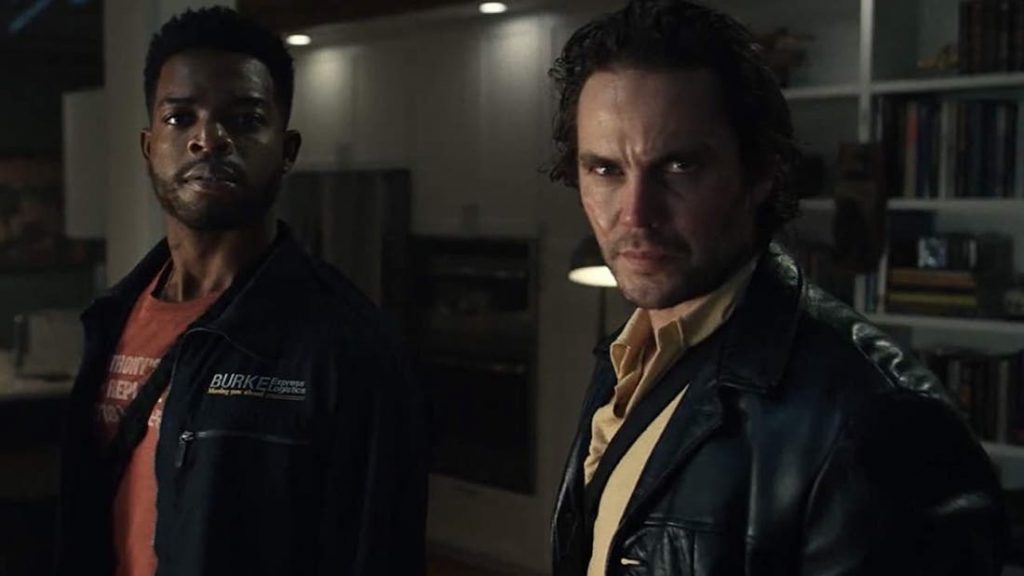
The cast is rounded out by talented actors filling in small parts. Academy Award-winner J.K Simmons (Whiplash) is criminally underused as Captain McKenna, playing a harsh badass urging Andre to avenge his fallen officers. But Sienna Miller (American Woman) is excellent as tough narcotics detective Frankie Burns, partnered with Andre to track down fugitives. However, the real star of the show is Stephen James (If Beale Street Could Talk) as Michael, who is paired with Taylor Kitsch’s (American Assassin) trigger-happy character Ray. The two play criminals caught up in the heist gone wrong, delivering more depth one would expect from generic villains. Kitsch brings the menace while James provides the heart.
Thanks to a screenplay by Mathew Michael Carnahan (World War Z) and Adam Mervis (The Philly Kid), we’re given just enough information to go along with Andre, while slowly learning there’s much more to this manhunt than the two criminals on the run. There’s nothing inherently flawed about the narrative, just as there’s nothing revolutionary about the story. If you’re fans of the genre you’ve probably seen something similar before. Thankfully, the script hammers home a sense of urgency that the police have until 5 a.m until their lockdown is lifted. This ensures that the 90-minute runtime keeps up a brisk pace. However, one couldn’t help but think that there could have been more potential if the writers were to explore the characters different motivations.
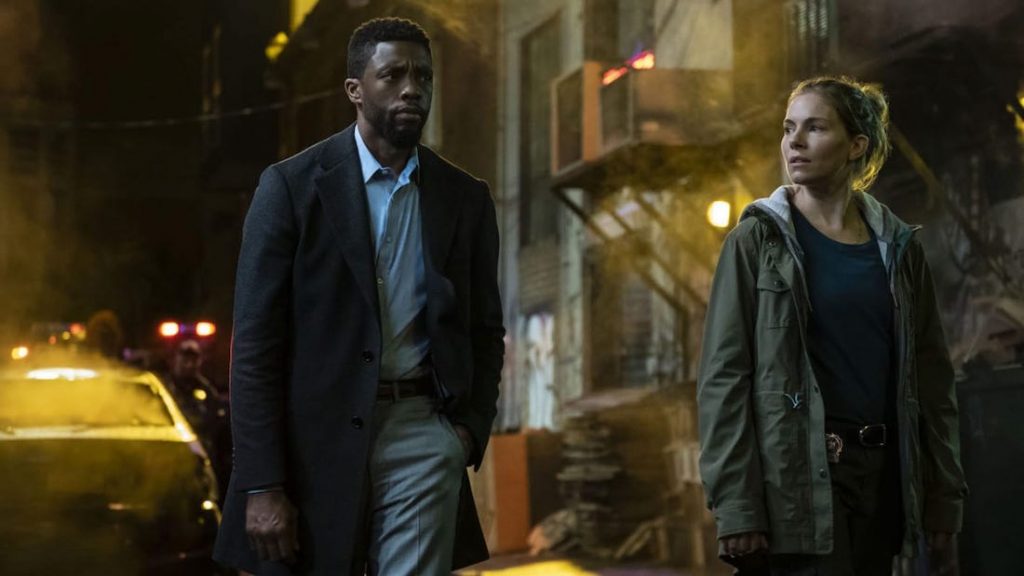
During the first act, 21 Bridges attempts to weave together the complexities of the justification of police violence—along with issues of police corruption and the state of urban policing. Understandably, the writers may have wanted to stray away from this angle because Black and Blue (2019) covered similar issues. However, instead of furthering these questions, the writers shy away from something that could’ve made for a great thematic backbone. Painting police corruption as a department-wide problem would’ve been a smart and resonant premise. Instead, it confines its corruption to a smaller subset of officers. No real commentary is given on the subject matter and, instead, 21 Bridges settles for simplicity. And this results in the narrative regurgitating almost every ’90s crime-thriller trope.
As straight forward as the plot is, 21 Bridges apparently changed a reasonable amount during development and production. Mervis wrote the original script, but Boseman’s hiring as actor and co-producer resulted in a lot of influence on the finished product. In fact, director Brian Kirk accepted input from the rest of the ensemble, saying in an interview “once they began to become involved and we really wanted to bed the movie in the most authentic place possible. So we listened to their voices, and took all of that on board”. This leaves one to suspect the original script was more daring. Maybe it explored Andre’s reputation as a killer and the effect it had on him?
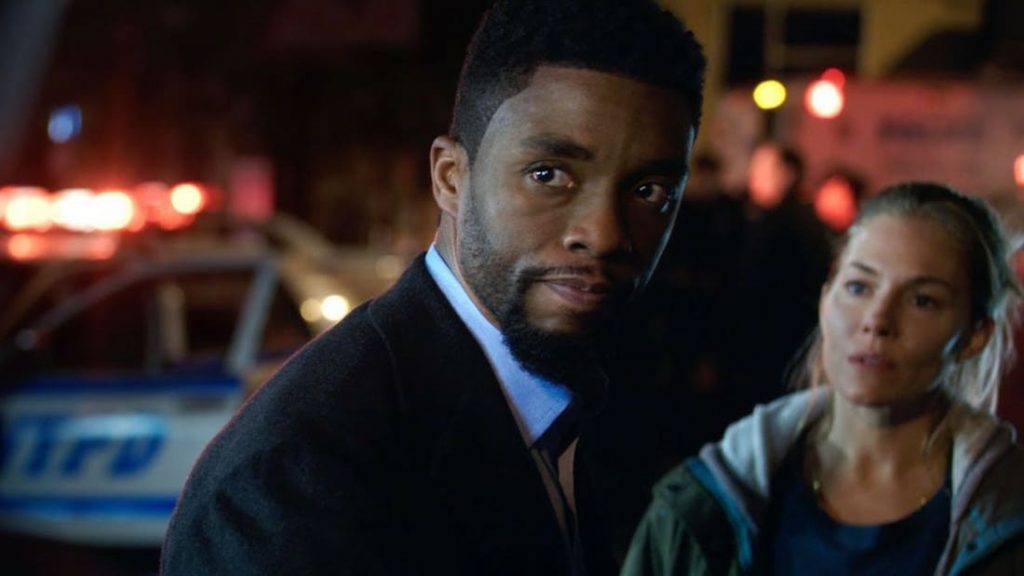
That being said, Kirk proves he has a dab hand behind the camera in his directorial debut. Fresh from helming episodes of Game of Thrones and Penny Dreadful, the filmmaker confidently takes charge of the movie, beginning with terrific scenes of a botched drugs heist. His direction has a strong sense of pacing and he fills each action sequence with plenty of energy. And he knows how best to punctuate a thriller with a violent confrontation or shoot-out.
In particular, a frantic chase sequence with Andre and Michael is brilliantly paced across the congested streets to the underground subway, evoking William Friedkin’s The French Connection (1971). And the tension is heightened thanks to a blaring score by Captain America: Civil War (2016) composers Alex Belcher and Henry Jackman. Paul Cameron’s (Man on Fire) cinematography also ensures nighttime scenes are painted in damp inky shadows, with several gleaming aerial views of the bustling city skyline. The gritty atmosphere of New York City is captured perfectly, giving the film a sense of oppressive darkness.
Overall, 21 Bridges gets most of its genre’s key elements right. It’s a throwback to cop thrillers such as The Fugitive (1993) and Heat (1995). The stakes are high, there are breakneck chases, and an interesting plot holding it all together. Personally, I’d have appreciated delving further into themes of political resonance such as Andre’s murky ethics and systematic racism. Instead, it opts for a less satisfying and more predictable route. Despite minor flaws, 21 Bridges is an intense thriller…. providing further proof that Boseman is capable of carrying a picture outside of the MCU.

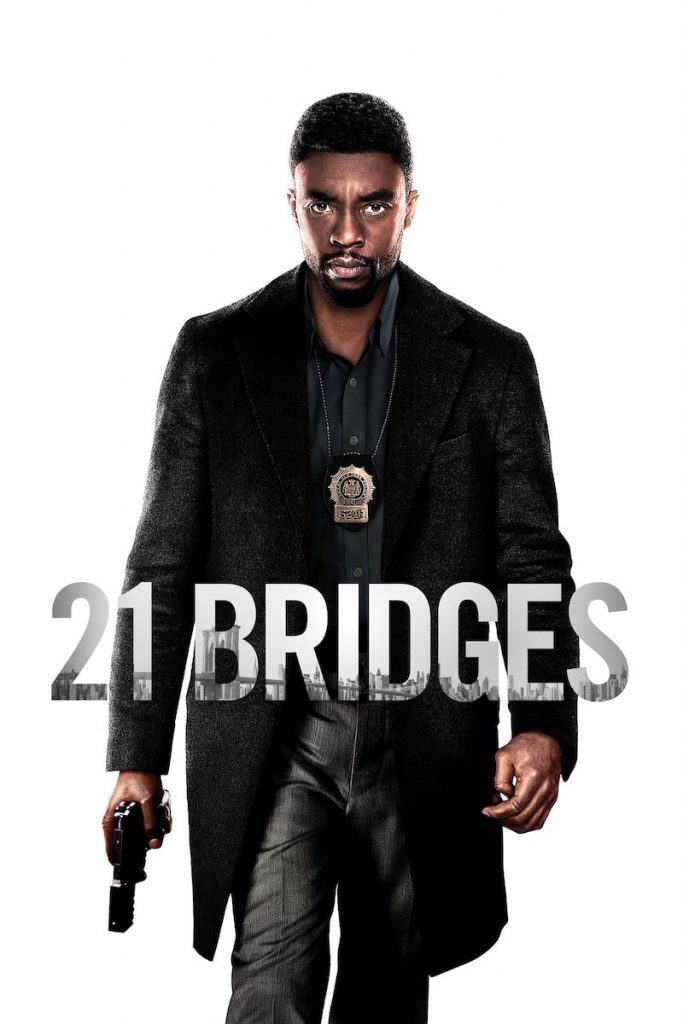
director: Brian Kirk.
writers: Adam Mervis & Matthew Michael Carnahan.
starring: Chadwick Boseman, Sienna Miller, Stephan James, Keith David, Taylor Kitsch & J.K Simmons.
